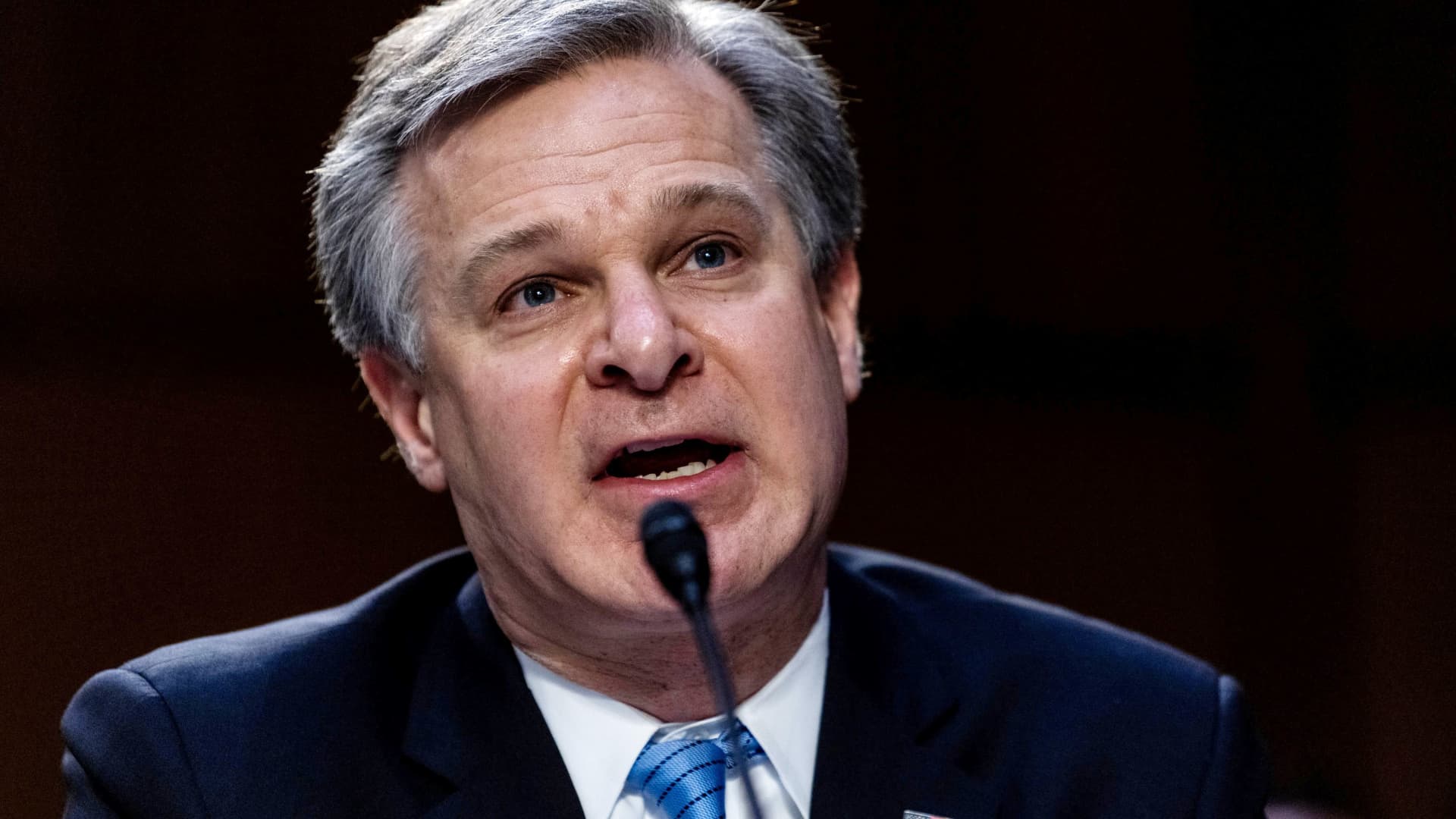FBI Director Christopher Wray speaks during a Senate Select Committee on Intelligence hearing about worldwide threats, on Capitol Hill in Washington, DC, U.S., April 14, 2021.
Graeme Jennings | Reuters
A federal judge ordered Thursday that former President Donald Trump and current FBI Director Christopher Wray can each be questioned in sworn testimony by attorneys for ex-FBI officials Peter Strzok and Lisa Page as part of their lawsuits related to the government’s disclosure of their private text messages.
Trump and Wray can be deposed for two hours each on a “narrow set of topics” that were hashed out during a sealed hearing earlier in the day, Judge Amy Berman Jackson wrote in an order in U.S. District Court in Washington, D.C.
But there are still some lingering questions about executive privilege to be resolved, the judge noted. She gave the Department of Justice until March 24 to specify whether President Joe Biden will invoke executive privilege over the specified topics.
An attorney for Page declined to comment. A lawyer for Strzok did not immediately respond to CNBC’s questions about the judge’s order.
Trump regularly attacked Strzok and Page starting in 2017, following the revelation that the pair sent anti-Trump texts while they were employed by the FBI and having an affair.
Strzok, at the time a top FBI counterintelligence official, was removed from a DOJ probe of Russian election meddling following then-special counsel Robert Mueller’s discovery of his texts. Strzok was fired in 2018.
Strzok and Page filed separate civil lawsuits in 2019 against the Justice Department and FBI. Strzok alleged he was fired “because of his protected political speech” in violation of his constitutional rights.
The decision “was the result of unrelenting pressure from President Trump and his political allies in Congress and the media,” Strzok’s legal complaint alleged. His lawsuit seeks relief including “reinstatement and back pay.”
Page, who resigned as an FBI lawyer in 2018, alleged in her own lawsuit that the DOJ violated the Privacy Act by “unlawfully disclosing agency records” when it shared her texts with the press.
This is developing news. Please check back for updates.

